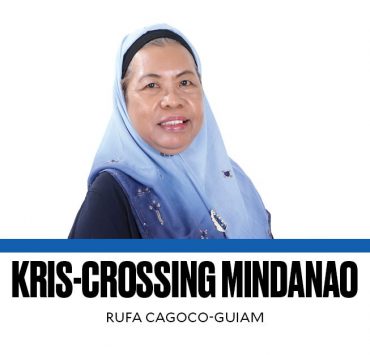Protecting our maritime and archipelagic inheritance from our ancestors

These words were uttered in a forum organized by the Philippine Rural Reconstruction Movement and the FVR Legacy Initiative last March 18 and 19. The forum brought together stakeholders from various sectors to provide inputs to the national framework and action plan for the Philippine Blue Economy. Introduced in 2012 by the United Nations, the “blue economy” challenges everyone to “collaborate across borders and sectors through a variety of partnerships” to be able to achieve goals in the sustainable use of water resources.
The blue economy encompasses the fisheries, energy, maritime transport and services, and coastal and marine tourism sectors. In the Philippines, these sectors are experiencing various issues that hinder their ability to use water resources sustainably. For instance, fishing communities continue to be the poorest of the poor due to declining fish catch caused by illegal, unreported, and unregulated fishing. They are also threatened by the recent decision of the Malabon Regional Trial Court that was affirmed by the First Division of the Supreme Court, allowing commercial fishing in municipal waters, which the Philippine Fisheries Code reserves for small fishers. Their fishing areas are also encroached by reclamation activities for tourism and development projects.
Meanwhile, government agencies have unclear functions and roles with regard to protecting and regulating water resources, causing fragmented efforts toward sustainable use and conservation. According to Sen. Grace Poe, 45 executive agencies, including 15 departments, 16 attached agencies, and 14 bureaus handle overlapping and conflicting functions on water. This confusion prevents government agencies from effectively enforcing regulations to protect the blue economy.
With the livelihoods of fishing communities in peril and unclear roles and functions of government agencies, how can concerted efforts from various stakeholders be ensured to contribute to the Philippine blue economy? As pointed out during the forum, this maritime and archipelagic nation is our mana or inheritance from our ancestors. We have the right to use this inheritance for our enjoyment and development, but we also have a shared responsibility to protect this inheritance and ensure that we will be able to pass this on to the next generations. We all must see to it that current and future generations have an equal share of use and duty to this inheritance.
As citizens, we must be mindful to use our water resources sustainably, whether in the fields of energy, fisheries, transport, or tourism. The government must ensure that in this mana, no one takes a share, which will prevent others from enjoying theirs. It can start by establishing clear functions among their agencies and enacting the Blue Economy Act pending in Congress. This would enable and empower the stakeholders, especially communities, to contribute toward and benefit the most from the blue economy.
Eunice M. Noveno,
project assistant,
John J. Carroll Institute on Church and Social Issues

















